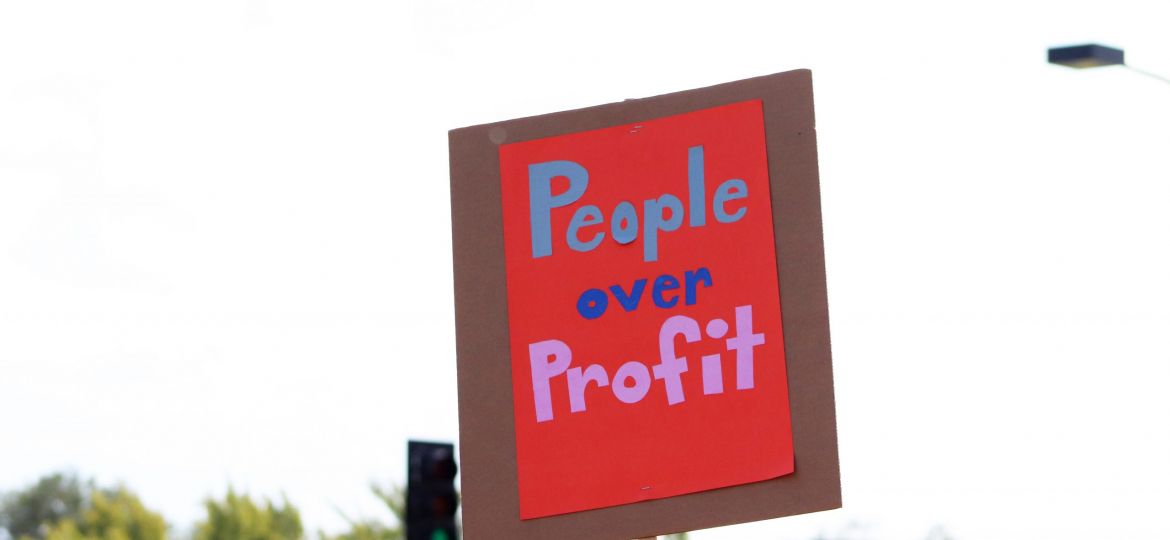
The rights of indigenous communities have often been compromised by corporate interests, and the proposed Line 3 pipeline, to be constructed by Enbridge Inc., is no exception. This issue has rallied support from many different activist groups in Minnesota, including a group here at St. Olaf that hopes to halt production.
Thomas Hardy ’20 was one of the students involved in direct action to stop the pipeline in Northern Minnesota. This includes demonstrations and efforts to block production of the pipeline. Hardy and other St. Olaf students worked with different activist groups, including Northfield Against Line 3 and Ginew Collective.
The $8 billion dollar project would replace the old pipeline and become one of the largest crude oil pipelines in the world. The line would carry 760,000 barrels of oil per day from Canada to a Lake Superior terminal owned by Enbridge.
In addition to the harmful effects of continuing production within the fossil fuel industry the pipeline causes, “serious impacts for local people in the places where the pipeline passes through, including indigenous treaty lands and different ecosystems,” Hardy said.
Hardy was inspired to fight Line 3 because he wanted to be a part of something that allowed him to apply his knowledge outside of an educational setting.
“It’s depressing learning about problems going on in the world,” Hardy said. “It’s really satisfying and enlivening joining this community who are trying to do something about them.”
Hardy traveled north to fight the pipeline with Issac Nelson ’21 and Bella Hoskins ’22. They were involved in conversations about the issues around the pipeline, including ones concerning colonization and indgenous treaty rights. The students participated in peaceful direct action through a demonstration outside of an Enbridge office.
Enbridge argues that the line is necessary to replace the existing faulty one and will be more efficient and safe. Environmentalists and activists argue that the risks outweigh the benefits.
The existing line runs through the northern territories of Minnesota and has already caused issues with leakage. The new project calls for total abandonment of the old line, which could result in further environmental damage, and expanding the line to new areas through Minnesota. In addition to threatening the rights of Native American populations living in the area, the pipeline could damage some of Minnesota’s most cherished natural resources and contribute to the climate change crisis.
Enbridge could not be reached for comment.
Among the issues the pipeline poses is one of sovereignty. The pipeline would cross the lines where the Ojibwe have treaty rights. Although the Leech Lake Band of the Ojibwe have made it clear that they would not want a new pipeline, Enbridge ignored them and planned the pipeline through tribal territory. According to a spokesperson quoted in a September 2019 Star Tribune article, the Ojibwe “are very clear” that Enbridge’s plan “would have a long-term detrimental effect on tribal lands, resources, spiritual places, medicines, food, and members.”
These communities have consistently protested throughout this process, and multiple bands of the Ojibwe have filed lawsuits against the state of Minnesota and have taken nonviolent direct action to prevent construction.
Hardy emphasized the importance of voting and pressuring politicians to make sustainable policies to protect the environment and human rights. He also urged others to become involved in direct action to make a more immediate effect on this issue and issues like it.
Hardy worked alongside multiple members of Northfield against Line 3, including Cliff Martin, who is organizing direct action training programs here in Northfield.
Martin is an environmental activist, union organizer and entrepreneur from Northfield who has worked on social and environmental justice issues for most of his life. Martin discussed many of the risk factors of the pipeline and emphasized the dangers that come with the extraction of tar sands, which is necessary for the pipeline.
Extracting tar sands is, “up there among the worst climate change causing things in North America,” Martin said. “Tar sand extraction has been poisoning first nation people in Canada for years. There is an immediate direct health impact on these people.”
Martin discussed the close relationships environmental groups have formed with indigenous activists.
“We are here to work in solidarity with the indigenous struggle, our job is to support them first and foremost,” Martin said. “It’s excellent that the things we want to do align so well.”
He emphasized the importance of listening and showing up for indigenous communities now and after this movement.
With Northfield against Line 3, Martin is working on a variety of projects under the mantra of “fight the bad, build the new.” From working to empower other grassroots movements led by Minnesota high schoolers to empowering working class citizens to fight injustice on the social and environmental level, Martin and Cooperation Northfield are planning to host programs for anyone hoping to get directly involved in this fight.
The program is for anyone who is interested in being, “immersed in training and education about movement building and climate justice,” Martin said. “Not just climate justice concerning fighting the pipeline but also in the context of building democratic green alternatives to capitalism.”

